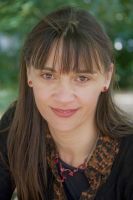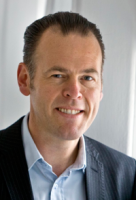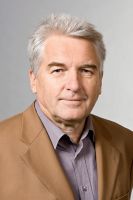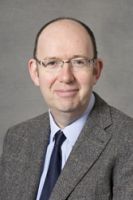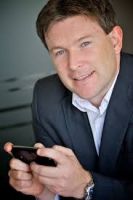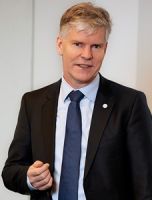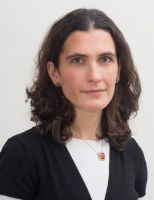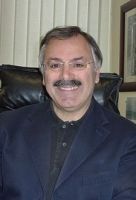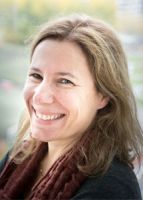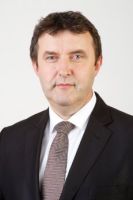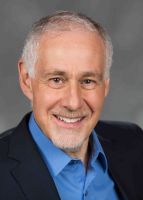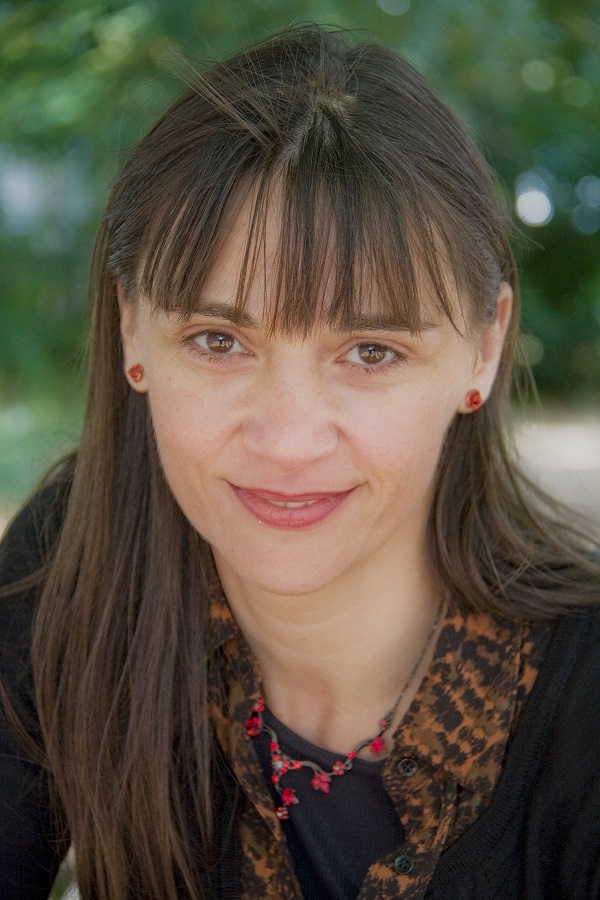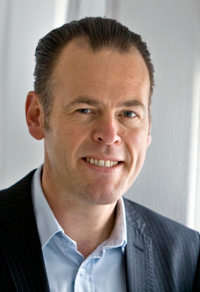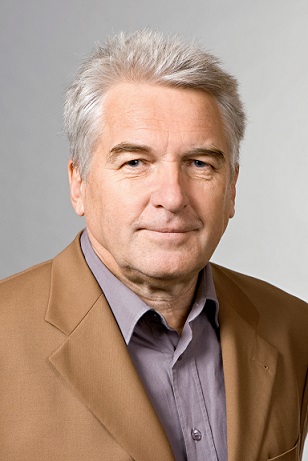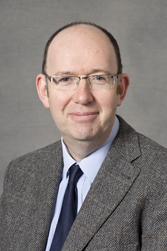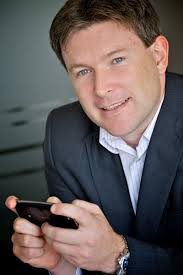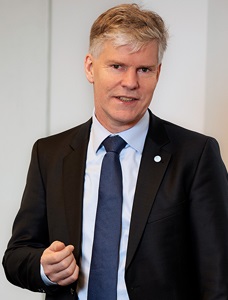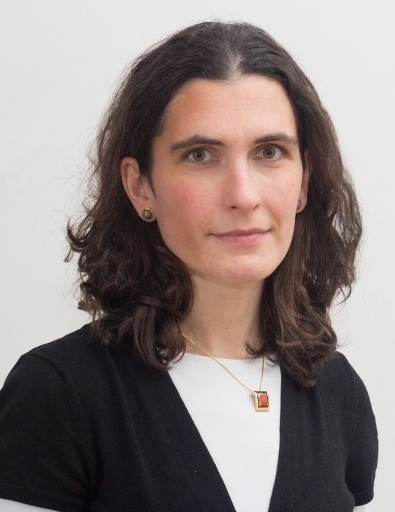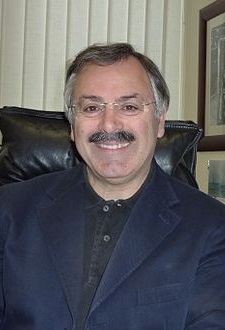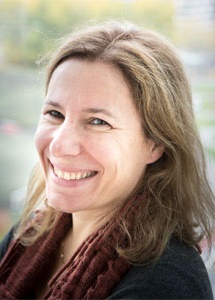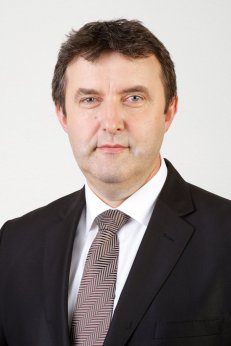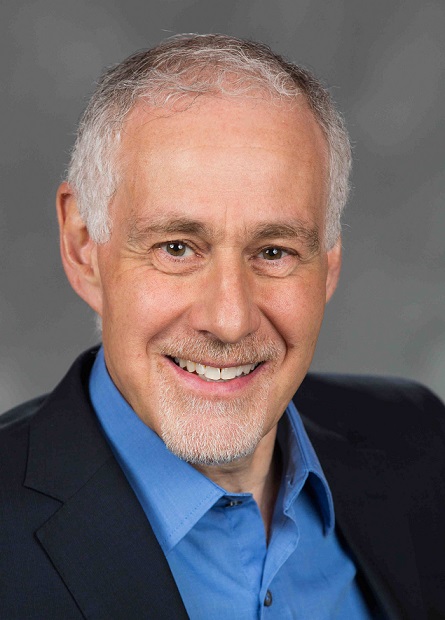-
Erika Ábrahám
Erika Ábrahám graduated at the Christian-Albrechts-University Kiel (Germany), and received her PhD from the University of Leiden (The Netherlands) for her work on the development and application of deductive proof systems for concurrent programs. Then she moved to the Albert-Ludwigs-University Freiburg (Germany), where she started to work on the development and application of SAT and SMT solvers. Currently she is professor at RWTH Aachen University (Germany), with main research focus on SMT solving for real and integer arithmetic, and formal methods for probabilistic and hybrid systems.
ECSS Talk: The Power of Satisfiability Checking
Since the development of the first computer algebra systems in the '60s, automated decision procedures for checking the satisfiability of logical formulas gained more and more importance. Besides symbolic computation techniques, some major achievements were made in the '90s in the relatively young area of satisfiability checking, and resulted in powerful SAT and SAT-modulo-theories (SMT) solvers. Nowadays, these sophisticated tools are at the heart of many techniques for the analysis of programs and probabilistic, timed, hybrid and cyber-physical systems, for test-case generation, for solving large combinatorial problems and complex scheduling tasks, for product design optimisation, planning and controller synthesis, just to mention a few well-known areas. In this talk we give a historical overview of this development and discuss some applications and potentials.
Read more
-
Jan Bosch
Jan Bosch is professor of software engineering and director of the Software Center at Chalmers University Technology in Gothenburg, Sweden. Earlier, he worked as Vice President Engineering Process at Intuit Inc where he also lead Intuit's Open Innovation efforts and headed the central mobile technologies team. Before Intuit, he was head of the Software and Application Technologies Laboratory at Nokia Research Center, Finland. Prior to joining Nokia, he headed the software engineering research group at the University of Groningen, The Netherlands. He received a MSc degree from the University of Twente, The Netherlands, and a PhD degree from Lund University, Sweden. His research activities include evidence-based development, software architecture, innovation experiment systems, compositional software engineering, software ecosystems, software product families and software variability management. He is the author of a book "Design and Use of Software Architectures: Adopting and Evolving a Product Line Approach" published by Pearson Education (Addison-Wesley & ACM Press), editor of several books and volumes and author of a significant number of research articles. He is editor for Journal of Systems and Software as well as Science of Computer Programming, chaired several conferences as general and program chair, served on many program committees and organized numerous workshops.
In the startup space, Jan is chairman of the board of Fidesmo in Stockholm, and Remente, in Gothenburg, Sweden. He serves on the advisory board of Assia Inc. in Redwood City, CA and Burt AB in Gothenburg, Sweden. Jan also runs a consulting firm, Boschonian AB, that offers its clients support around R&D and innovation management. More information about his background can be found at his website: www.janbosch.com.
ECSS Talk: The Future is Already Here – It’s Just Not Distributed Evenly
Traditional collaboration between industry and academia is based on the assumption that knowledge is created in universities and then dissipates to companies. Although this may be true in some fields of research, it most certainly is a false premise for research in ICT. Knowledge is created in companies and the role of academia is to identify, generalize and accelerate the distribution of this knowledge to other companies. Due to the constantly increasing rate of innovation, European companies as well as universities are at significant risk of disruption in the coming decade. Because of this novel engagement approaches between industry and academia are required that avoid the pitfalls and inherent problems of traditional public funding models. This keynote first analyses the challenges faced by industry as well as academia. Then, it introduces a novel engagement model currently employed by the Software Center, a collaboration between nine Nordic companies and five Swedish universities, and finally it shows evidence of the benefits of the model.
Read more
-
Manfred Broy
Manfred Broy’s research interests are software and systems engineering comprising both theoretical and practical aspects. This includes system models, specification and refinement of system com¬ponents, specification techniques, development methods and verification. He is leading a research group working in a number of industrial projects that apply mathematically based techniques and combine practical approaches to software engineering with mathematical rigor. The main topics are requirements engineering, ad hoc networks, software architectures, componentware, software development processes and graphical description techniques. In his group the CASE tool AutoFocus was developed. One of Manfred's main interest themes is the role of software in a networked world. Under his leadership as a member of acatech, the study Agenda Cyber-Physical Systems was created for the Federal Ministry of Research to comprehensively investigate the next stage of global networking through the combination of cyberspace and embedded systems in all their implications and potential. Since January 2016, Manfred Broy is founding president of the Bavarian Centre for Digitization.
ECSS Talk: How does the Digital Transformation affect Informatics as a Scientific Discipline?
Informatics went through a number of phases. In its beginning, its visibility was relatively small and in a general view it was not a very relevant discipline for only a small number of experts and a very limited number of applications. Then, informatics went through a number of phases getting from a small lab discipline to a more general infrastructure discipline being of more and more importance for telecommunication, becoming part of departments, introducing personal computing, mobile computing, the internet, lots of embedded systems, high performance computing and finally smart phones, cyber physical systems and the internet of things.
This development demonstrates that informatics developed with a speed not comparable to any other discipline into a discipline which is of high importance to all other scientific disciplines, to enterprises, to global economy, to politics, to state security, and to the everyday life. Today, it is perhaps one of the most important powers in economy and it is about to change the world.
This speed of the development has also overwhelmed informatics as an academic discipline. The challenge is to understand the elements of the digital transformation and its effects for the academic discipline informatics to respond to this rapid change.
Read more
-
Anthony Finkelstein
Anthony Finkelstein was appointed Chief Scientific Adviser for National Security in December 2015. His research is based at The Alan Turing Institute and he holds a Chair in Software Systems Engineering at University College London (UCL). He is a visiting professor at Imperial College London and at the National Institute of Informatics, Tokyo, Japan. He is a Fellow of the Royal Academy of Engineering (FREng), an elected Member of Academia Europaea (MAE) and a Fellow of the City and Guilds of London Institute (FCGI). Prior to assuming his current role he was Dean of the UCL Faculty of Engineering Sciences and Head of UCL Computer Science. His scientific work is in the broad area of systems engineering.
ECSS Talk: Working in Government: From Research to Policy
This talk will reflect upon the experience of moving from research to a Government advisory role. It will look generally at the role of scientific advice in policy and specifically at the major issues for Informatics in the critical policy domain of security.
Read more
-
Roland Jakab
Roland Jakab joined Ericsson in 2000, at first working as a strategic business consultant and later managing mobile banking projects. He was then placed in charge of sales of multimedia products in Hungary and Macedonia. In 2008 he was appointed Marketing and Communication Director, then Vice President. Since 2013 he has been Managing Director of the company currently employing 2000 persons. He has diplomas in Informatics and Political Science from the University of Debrecen where he has also been active over the past ten years as a lecturer. He did postgraduate studies at universities in the United States. He plays an active part in numerous non-governmental organisations: he is Chairman of the Hungarian European Business Council (HEBC) that groups Hungarian top managers of 12 European industrial companies, Chairman of the Mobility and Multimedia Cluster grouping 71 companies, Vice President of the ICT Association of Hungary, Member of the Board of the Swedish Chamber of Commerce in Hungary, and founding Vice President of the Together for the Engineers of the Future Association. He is a leading consultant to numerous bodies dealing with education, innovation and infocommunications and is regularly invited to give lectures at conferences and forums. In 2013 he was awarded the Tivadar Puskás Prize.
ECSS Talk: Transformative power of ICT
The old Machine-to-Machine world has already evolved into the Internet of Things (IoT). Ericsson forecasts billions of connected devices by 2020. These can be anything: a sensor from the utility sector or a connected vehicle from the automotive industry or even public safety. These devices, rather than communicating with only each other, could upload the data into a BigData cloud for other services to use this data. This transformation is already happening and we are leading this transformation through mobility. 5G is the future. We learned a lot from 4G, so we know there are so many use cases. Some devices in the agriculture need to consume almost no power at all and transmit very low power signal so their batteries last ten years while other devices need to have extremely low latency. Just think about self-driving cars. All of this is going to be a part of the Networked Society. We live in a world where five billion people are connected – where mobile broadband and cloud are transforming the fabric of society. Ericsson’s technologies are making this a reality. New technologies enable more affordable and easier accessible systems. This potential has already opened up the door for an entire new range of business models. Wide adoption of these new technologies requires global scalability, reliability and security in form of services which can be easily used by all industries. In the IT domain in every 5-10 years revolutionary enablers appear, just think about the personal computers, the Internet, cloud technologies and mobile apps, but all of them have become mature once industries could start using them hassle free. For Ericsson, IoT and 5G is about how can we bring connectivity and intelligence to all sort of industries in a way our partners can digitalize their business seamlessly, not losing focus of their core businesses.
Read more
-
Willem Jonker
Willem Jonker (1962) has a broad background in ICT, both in industry as well as in academia. He studied mathematics and computer science at Groningen University, worked at Delft University of Technology, received his PhD from the University of Utrecht, and is a part-time full professor in computer science at Twente University.
Willem Jonker's industrial experience covers telecommunications (KPN), IT (European Computer industry Research Centre, Munich) and consumer electronics (Philips). He held several positions as researcher, international project leader, department head, sector head, and account manager. In 2006 he was appointed Vice President Philips Research. Willem Jonker has served European ICT research in various ways amongst others as project leader, reviewer, and advisor.
ECSS Talk: Innovations driving the Digital Transformation
The fast development of ICT related innovations leads to a Digital Transformation of our society. The talk will highlight the way digital innovation impact of the transformation of our industries, cities, healthcare and financial systems, illustrated by concrete examples from the EIT Digital supported innovation activities.
Read more
-
Laura Kovács
Laura Kovács is a full professor at the Faculty of Informatics of Vienna University of Technology (TU Vienna). She also holds a part-time position as associate professor at the Department of Computer Science and Engineering of the Chalmers University of Technology. She has a diploma in computer science and math from the West University of Timisoara, Romania and a PhD with highest distinction in computer science from the Research Institute of Symbolic Computation (RISC-Linz) of the Johannes Kepler University Linz, Austria. Prior to her appointment to Vienna, she was an associate professor at Chalmers.
In her research, Laura Kovács deals with the design and development of new theories, technologies, and tools for program analysis, with a particular focus on automated assertion generation, symbolic summation, computer algebra, and automated theorem proving. She is the co-developer of the Vampire theorem prover. In 2014, she received the Wallenberg Academy Fellowship and an ERC Starting Grant.
ECSS Talk: Automated Reasoning for Systems Engineering
Automated reasoning, and in particular first-order theorem proving, is one of the earliest research areas within artificial intelligence. It is undergoing a rapid development thanks to its successful use in program analysis and verification, semantic Web, database systems, symbolic computation, theorem proving in mathematics, and other related areas. Breakthrough results in all areas of theorem proving have been obtained, including improvements in theory, implementation, and the development of powerful theorem proving tools.
In this talk I give a brief overview on the main ingredients of automated theorem proving, and focus on recent challenges and developments in the area. Further, I will discuss recent applications of theorem proving in rigorous systems engineering.
Read more
-
Domenico Laforenza
Dr. Domenico Laforenza (1952) is director of the Institute for Informatics and Telematics of the Italian National Research Council (CNR) since 1 July 2008. He is also head of the Registry for domain names for Italy (ccTLD ".IT"), and member of the EURid Board of Directors. Since April 2015 he is member of the Horizon 2020 “Future and Emerging Technologies” Advisory Group. On January 2014 Dr. Laforenza was elected president of ERCIM AISBL (European Research Consortium for Informatics and Mathematics). On January 2013 he was elected president of the CNR Pisa Research Campus (Area della Ricerca CNR di Pisa).
He has a long carrier in ICT started at CNUCE (Centro Nazionale Universitario di Calcolo Elettronico) in 1972 where he has held various positions (operator, programmer, performance evaluator). Dr. Laforenza received the doctoral degree in Computer Science from the Department of Computer Science of University of Pisa in 1977. In 1982 he was co-founder of the High Performance Computing Laboratory at the CNR Institute of Information Science and Technologies where he was resposible until 30 June 2008.
His main areas of scientific interest are: high performance computing, parallel and distributed systems programming, Grid/Cloud computing, and more recently, Internet Governance. From 1996 to 2006 Dr. Laforenza was professor of Parallel and Distributed Applications at the Computer Science Department of the University of Pisa. Dr. Laforenza is author of numerous publications and organiser of national and international ICT events.
ECSS Talk: The role of Informatics societies in contributing to the scientific, social and economic growth in Europe
Research and Innovation remain two strategic key drivers of economic growth, as recently highlighted by both the Global Innovation Index 2016 and the World Economic Forum’s Global Competitiveness Report 2015-2016. As reported in the CONNECT Advisory Forum’s position paper on “ICT in Horizon 2020 beyond 2015”: “Europe’s global competitiveness depends on a vibrant Information Technology industry that acts as an engine for innovation and strongly supports Europe’s Core Industry. This is also essential to maximise the benefits of the increasing penetration of information technology and digitalization of the whole economy”. Consequently, Informatics (term used to comprise: Computer Science, Computing Science, Information and Communication Technology) is at the forefront of these strategic goals. There are some clear and well-consolidated trends indicating the future roadmap of Informatics, for example: Internet of Things (Internet of BioNano Things, Lab-on-a-chip), Big Data, Cloud Computing, Exascale Computing, Quantum Computing, Cybersecurity, Future Internet, Cognitive Systems and Robotics, the revamping of the Artificial Intelligence, Self-driving cars, distributed ledgers (blockchain), and issues related to Privacy vs. Security. The above list doesn't pretend to be exhaustive (although it is inclusive of R&D themes reported in several international studies and roadmaps), and moreover the listed items don’t have the same “grain” in terms of R&D efforts and impact on the economy/society. This talk doesn’t intend to present novel and blue-skies research themes of investigation in Computer Science but, starting from the current situation of the European instruments and investments devoted to support ICT R&D, it would like to fuel a discussion whether they are appropriate to the expectations of the European Informatics stakeholders (with particular attention to people from academic and public research environments), how those stakeholders are involved in the decision-making process for the definition of the H2020 programmes and strategies, and finally to contribute to the ongoing discussion about the closer cooperation of Informatics Europe and ERCIM AISBL to enhance the critical mass of the European computer scientists and their capacity to proactively contribute to the scientific, social and economic growth in Europe.
Read more
-
Patricia Lago
Patricia Lago is full professor at the Vrije Universiteit Amsterdam, leading the group on social and sustainable software and services. Her research interests are in software- and service oriented architecture, architectural knowledge management, and green IT. Lago has a PhD in Control and Computer Engineering from Politecnico di Torino, Italy. She is chair of the IEEE/IFIP WICSA Steering Committee, member of the IFIP 2.10 Working group on Software Architecture, the IFIP 2.14 Working group on Services-based Systems, and the Dutch Knowledge Network on Green Software. She is Area Editor Service Orientation of the Elsevier Journal of Systems and Software.
ECSS Talk: Software with a Sustainability Intent
Software is being developed since decades without taking sustainability into consideration. This holds for its energy efficiency, that is the amount of energy software consumes while ensuring other system qualities like security, performance, reliability, etc. etc. Software un-sustainability, however, is becoming increasingly evident with the growing interest worldwide. Finally IT specialists are becoming aware that software solutions can, and should, be designed with sustainability concerns in mind. In doing so, they can create solutions that are technically more stable (hence requiring less modifications over time), target societal goals with a higher certainty, or help sustaining the business goals of both developing and consuming organizations. Everything sounds great. The real question is: how? How can we redirect software engineering practices toward sustainable software solutions? And how can we turn sustainability into a business so that companies will finally invest in it? This talk explores results and challenges in engineering software with a sustainability intent.
Read more
-
László Palkovics
Hungarian Government
Read more
-
Alexander Wolf
Alexander L. Wolf served in many volunteer roles in the Association for Computing Machinery (ACM), from program committee member to President. He is currently Dean of the Baskin School of Engineering at the University of California, Santa Cruz, and Distinguished Professor in the departments of Computer Science and Computer Engineering. Prior to this he was a Professor of Computing at Imperial College London and Charles Victor Schelke Chair in the College of Engineering and Applied Science and Professor of Computer Science at the University of Colorado, Boulder. Early in his career he was a Member of the Technical Staff at AT&T Bell Laboratories in Murray Hill, New Jersey. During a two-year leave from the University of Colorado, he helped found the Faculty of Informatics at the University of Lugano, Switzerland.
Alex's interests span the areas of distributed systems, networking, and software engineering. His achievements include seminal work in software architecture, business analytics, information-centric networks, and cloud data centers. Alex is a Fellow of the ACM, IEEE, and BCS.
ECSS Talk: Professional Societies in Computing: An Anachronism or an Anchor?
Having served as a volunteer leader of a professional society for nearly twenty years, I have come to appreciate the tremendous positive influence it can have, both on individuals and on the profession as a whole. Yet the viability and role of professional societies are being challenged as we move toward a more implicitly connected, open, and accessible world. This talk looks at the deep and difficult question of whether the current model of a professional society in computing is sustainable, or even necessary, in the 21st century.
Read more

